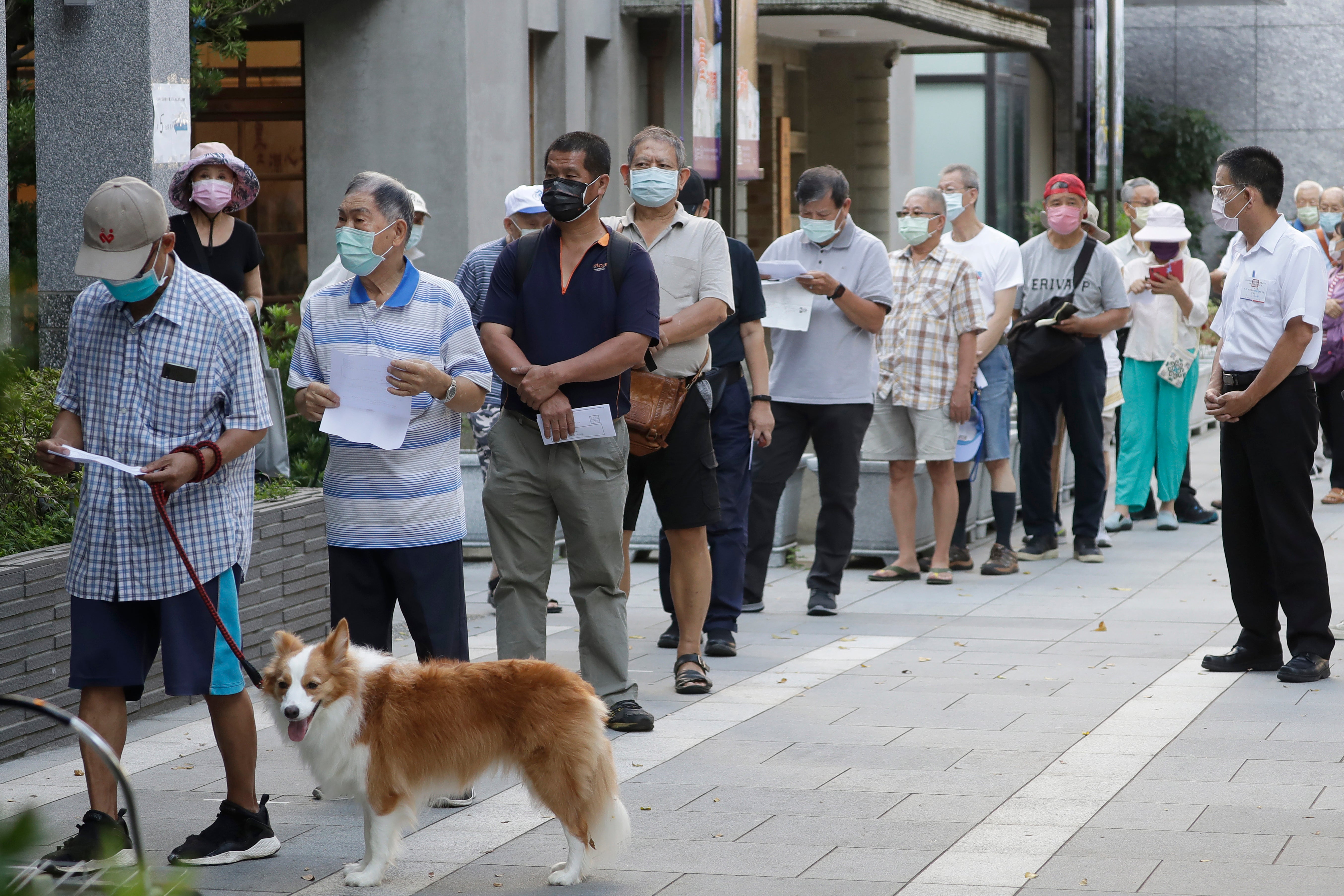China issues dominate election of Taiwan opposition leader
Fraught relations with neighboring China are dominating the election for the leader of Taiwan's main opposition Nationalist Party

Your support helps us to tell the story
From reproductive rights to climate change to Big Tech, The Independent is on the ground when the story is developing. Whether it's investigating the financials of Elon Musk's pro-Trump PAC or producing our latest documentary, 'The A Word', which shines a light on the American women fighting for reproductive rights, we know how important it is to parse out the facts from the messaging.
At such a critical moment in US history, we need reporters on the ground. Your donation allows us to keep sending journalists to speak to both sides of the story.
The Independent is trusted by Americans across the entire political spectrum. And unlike many other quality news outlets, we choose not to lock Americans out of our reporting and analysis with paywalls. We believe quality journalism should be available to everyone, paid for by those who can afford it.
Your support makes all the difference.Fraught relations with neighboring China are dominating Saturday's election for the leader of Taiwan’s main opposition Nationalist Party.
Four candidates, including incumbent Chairman Johnny Chiang, are competing for the leadership of the party that has advocated closer relations with Beijing
That means agreeing to Beijing’s demand that it regard Taiwan as a part of China, something Taiwan’s ruling Democratic Progressive Party has refused to do.
China has threatened to use force to bring Taiwan under its control and has increasingly used military, diplomatic and economic pressure in an attempt to undermine the administration of President Tsai Ing-wen and sway opinion among the Taiwanese people, who strongly favor the status quo of de-facto independence.
Mindful of public opinion, the Nationalists have advocated a less acrimonious relationship with China, rather than direct moves toward unification between the sides, which are bound by close economic, linguistic and cultural ties.
Others running are former party chairman and presidential candidate Eric Chu, ex-county head Cho Po-yuan, and academic Chang Ya-chung. The result is expected to be announced early Saturday evening.
The winner may emerge as the party's candidate in the next presidential election in 2024, although that selection has yet to begin. Tsai is constitutionally barred from running for a third term.
Under Chiang Kai-shek, the party rose to power in China during the 1920s and led the struggle against Japanese invaders until the end of World War II. Chiang relocated the government, still officially known as the Republic of China, to Taiwan in 1949 as Mao Zedong's Communists swept to power on mainland China.
Taiwan began transitioning from martial law rule to multiparty democracy in the later 1980s and held its first direct presidential election in 1996. Since then, power has shifted between the Nationalists, also known as the KMT, and the DPP, although Tsai has won twice by healthy margins and her party has control of the national legislature.
China refuses to recognize Taiwan's government and ensures it is excluded from the United Nations and other international organizations.
Beijing says the island's participation in such roles as an observer to the World Health Assembly is dependent on it endorsing the “one-China principle" and “'92 consensus," named after an agreement reached that year between representatives of the Nationalists and Communists stating that the sides were part of single Chinese nation.
Following Tsai's first election victory in 2016, China cut off all formal contacts between the governments, banned Chinese tour groups from visiting the island and mounted a campaign to poach away Taiwan's dwindling number of diplomatic allies.
With increasing frequency, China has also sent military aircraft into airspace near Taiwan and staged threatening military exercises.
Partly in response, the U.S. has stepped up political and military support for the island, despite the lack of formal diplomatic ties between them.